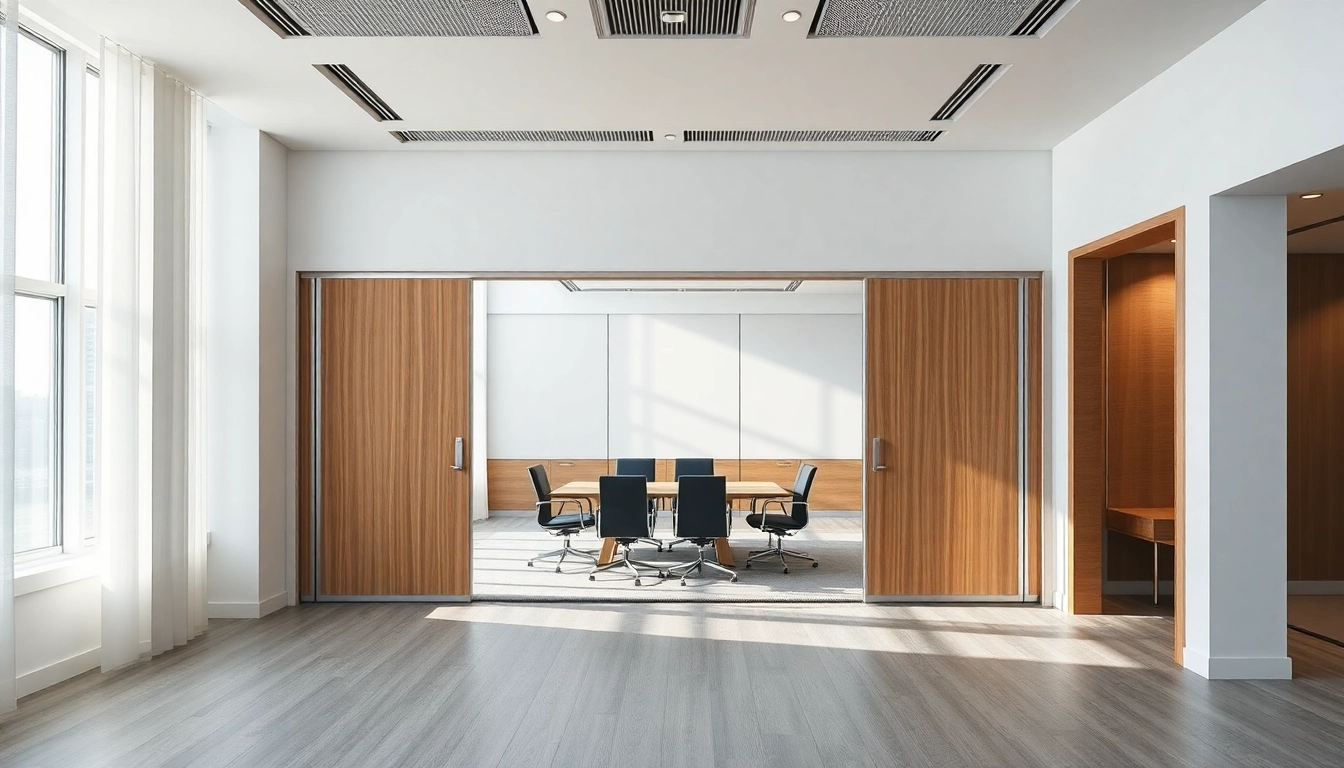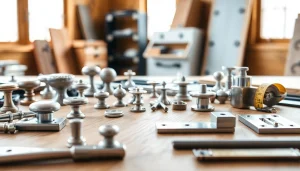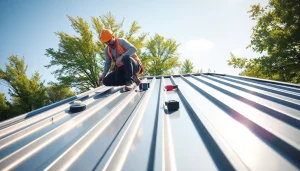Understanding Folding Partition Walls
A Folding Partition Wall is a versatile solution designed to enhance space management by allowing for flexible room division. In modern spaces where adaptability is key, these partitions are increasingly popular in schools, offices, auditoriums, and event venues. They offer a seamless way to create private areas or open spaces as needed, providing numerous benefits that go beyond merely dividing rooms.
What is a Folding Partition Wall?
A folding partition wall is a type of movable wall system that can be easily opened or closed to create flexible space arrangements. Unlike traditional fixed walls, folding partition walls can be retracted to open the space or expanded to divide it, allowing for dynamic usage of areas within commercial and residential settings. Typically featuring a series of hinged panels or sliding systems, these walls can vary in height, thickness, and materials, depending on their intended use.
Key Features and Benefits
The benefits of folding partition walls are multifaceted:
- Flexibility: They enable instant reconfiguration of space, which is invaluable for events that require changing room arrangements.
- Soundproofing: Many folding partition systems are designed to provide superior acoustic separation, making them ideal for conference rooms, classrooms, or any setting requiring concentration and privacy.
- Space Efficiency: These walls can maximize usable space without the commitment of permanent structures, which can be crucial in high-rent urban environments.
- Aesthetic Appeal: Available in various finishes and designs, folding partitions can complement existing decor, enhancing the overall ambiance of a room.
- Cost-Effectiveness: Given their functionality, they often turn out to be more affordable in terms of construction and maintenance compared to traditional walls.
Materials and Design Options
Folding partition walls can be crafted from a variety of materials, each offering distinct advantages:
- Wood: Offers a classic look and excellent acoustic performance, suitable for office environments and formal settings.
- Glass: Provides a modern aesthetic and allows natural light to permeate spaces, making them feel larger and more open.
- Fabric: Often used for lightweight diveders, fabric partitions can also be acoustically treated to enhance sound control.
- Metal: Durable and sleek, metal partitions are commonly used in warehouses or industrial settings, providing strength and longevity.
Applications of Folding Partition Walls
Commercial Spaces
In commercial environments, folding partition walls serve a vital role in optimizing the space. For instance, in hotels, these partitions can quickly transform a large banquet hall into separate meeting rooms to host multiple events simultaneously. Retailers also use partitions to create pop-up shops or promotional spaces, enabling fluidity in store layout without extensive renovations.
Office Environments
The rise of open-plan offices has necessitated the use of folding partition walls to allow for greater flexibility in workspace management. Companies can easily adjust layouts for teamwork or individual work periods. These partitions can also enhance collaboration while still offering areas for privacy when needed, contributing to an overall productive work environment.
Event and Exhibition Halls
Folding partition walls are particularly common in event spaces. They provide the quick versatility needed for hosting various functions—from trade shows to exhibitions—allowing organizers to modify room sizes as needed, thus maximizing attendance capacity and material display options.
Choosing the Right Folding Partition Wall
Considerations for Size and Scale
When choosing a folding partition wall, size is a crucial factor. Measure the intended area to ensure the partition can effectively divide the space without overwhelming the room. Larger corporate events may require taller walls to maintain privacy and sound control, while smaller settings may benefit from more compact designs.
Acoustic and Aesthetic Factors
Soundproofing capabilities are essential, especially in environments like schools, healthcare facilities, or offices where noise can disrupt activities. Choosing a system with robust acoustic performance, such as ones with a sound-rated design, ensures that noise is minimized between divided spaces.
Aesthetics also play a significant role. The color, finish, and material should align with the design philosophy of the building and other interior elements. For modern, chic environments, glass or mirrored partitions may be more appealing, while more rustic designs might prefer wood or fabric finishes.
Cost vs. Value Analysis
Finally, while cost may be a significant factor, the value offered by high-quality folding partition walls often justifies the investment. Evaluating the lifetime cost—including installation, maintenance, and energy efficiency—compared to the benefits of functionality and adaptability is crucial for making the best decision.
Installation and Maintenance
Installation Tips and Best Practices
Proper installation of folding partition walls ensures long-lasting functionality. Engaging experienced professionals is recommended due to the intricacies involved in aligning the tracks and panels. Here are key installation tips:
- Ensure accurate measurements before ordering to avoid any fit issues.
- Follow manufacturer guidelines closely for your specific product.
- Utilize appropriate tools and professional services to achieve a precise installation.
Regular Maintenance Tasks
To prolong the life of folding partitions, it’s important to implement a routine maintenance schedule. This can include:
- Regular cleaning of the surfaces to prevent dust and dirt build-up.
- Inspecting the tracks and hardware for any signs of wear and ensuring all components are functioning properly.
- Lubricating moving parts according to the manufacturer’s specifications.
Maximizing Lifespan and Efficiency
Properly maintained folding partition walls can last for many years. Regular assessments to check the soundproofing integrity and mechanical functions are essential to ensuring continued effectiveness and user satisfaction. In addition, avoid putting undue stress on the partitions by ensuring they are only used for their intended purpose.
Future Trends in Folding Partition Walls
Innovations in Materials and Technology
As architectural needs continue to evolve, so does the technology behind folding partition walls. Innovations in materials such as lightweight composites and smart glass technology offer new possibilities in both function and aesthetics. Furthermore, advancements in acoustic technology are enhancing sound insulation capabilities, making these partitions suitable for increasingly sophisticated environments.
Sustainability in Design
With the rise in environmental consciousness, sustainable design is more critical than ever. Folding partition walls can be made from recycled materials, and manufacturers are increasingly considering eco-friendliness in their processes. This trend appeals to businesses seeking to reduce their carbon footprints while fulfilling corporate social responsibility goals.
The Growing Demand in Various Industries
The demand for folding partition walls is likely to increase across various industries, particularly in the increasingly flexible work environment sought by many organizations. As the need for adaptable spaces continues, these solutions will play a key role in managing how spaces are utilized in coming years.


